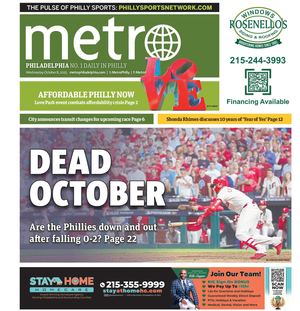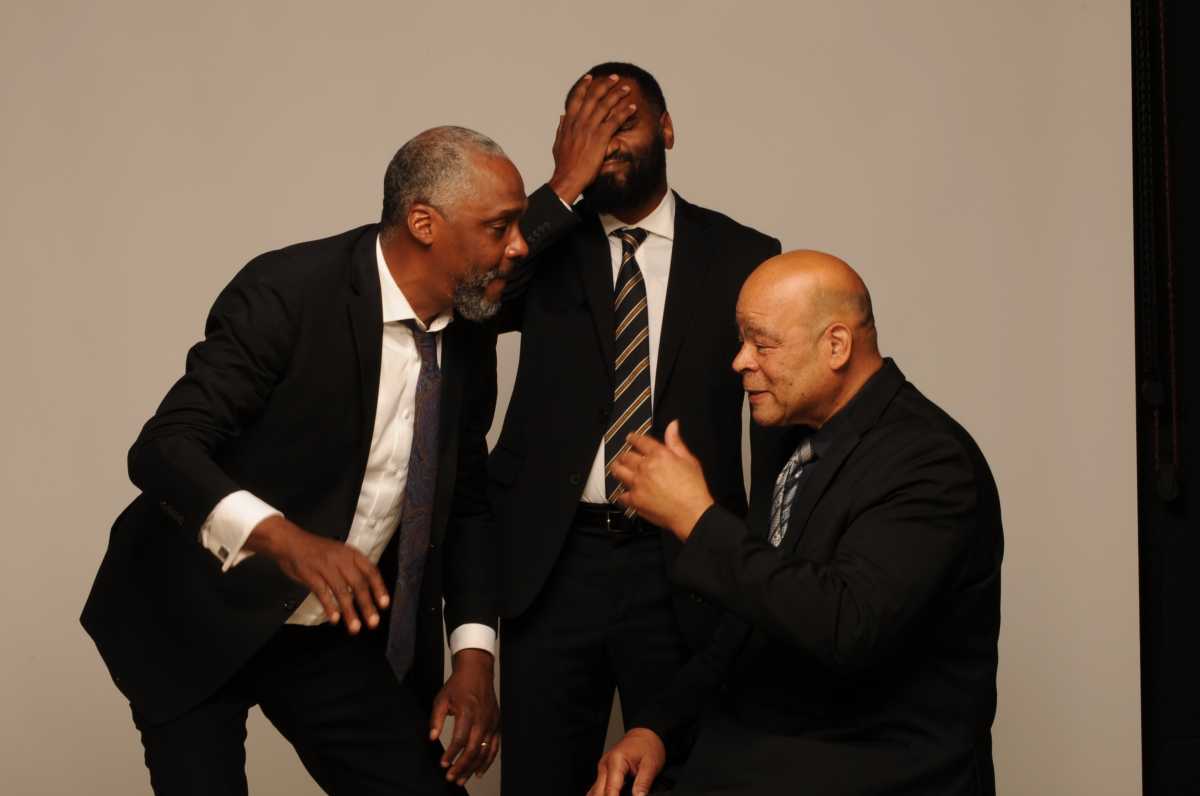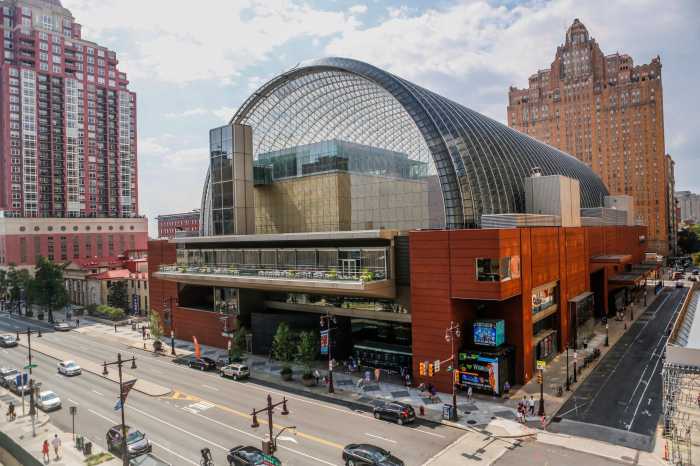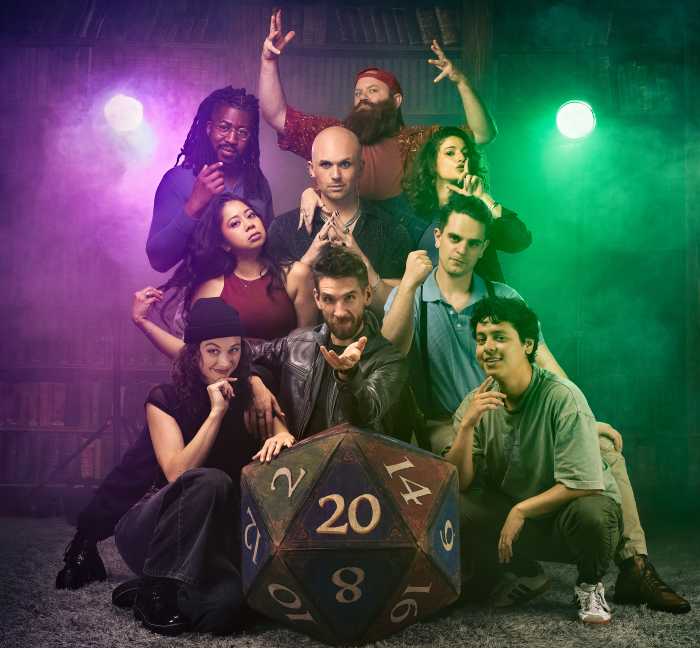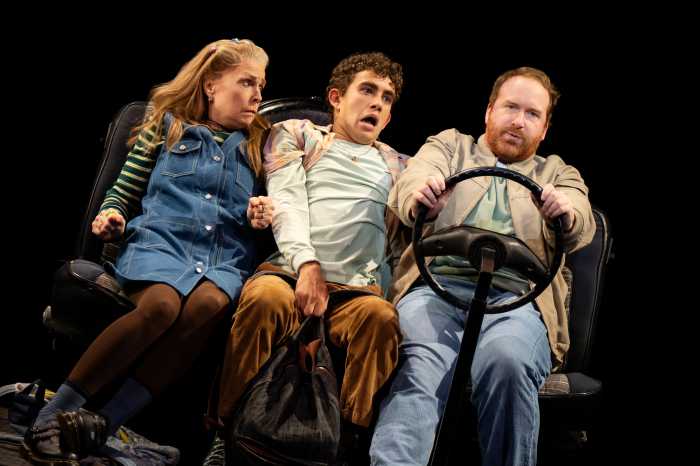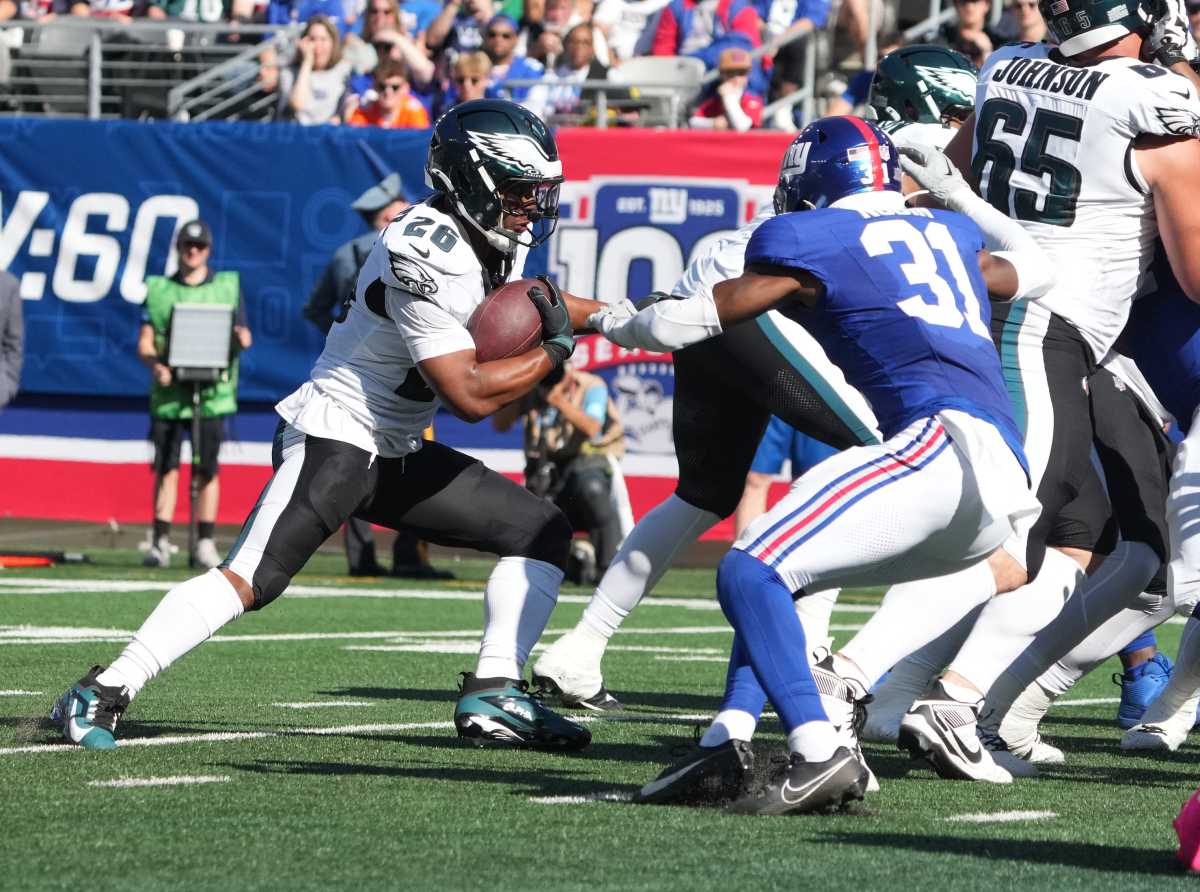Since 2013, Theatre in the X has transformed public parks into stages to present powerful stories and professional-quality theatre to West Philadelphia and the African-American community.
These free performances amplify Black voices, nurture local talent, and spark meaningful dialogue. This month, Theatre in the X returns to Malcolm X Park with ‘Fraternity’, a drama by Jeff Stetson that highlights themes of identity, legacy, and leadership within an elite Black men’s social club.
Executive Director LaNeshe Miller-White recently sat down with Metro to discuss the theatre’s mission, why it was important to produce ‘Fraternity’ this summer, and what it takes to create theatre in a West Philly park.
Since its founding, Theatre in the X has aimed to make professional theater accessible to West Philadelphia and the Black community. In what ways has the organization been fulfilling that mission?
We have given opportunities to hundreds of theatre artists of color, many of whom have since gone on to work with the larger theaters in the city, on Broadway, touring shows, and television. We’ve also developed an audience that trusts us and have been introduced to other theatres in the city through our partnerships. For many of our audience members, our productions are their first introduction to theatre and the spark to their interest in more theatrical experiences.
In additional to our annual Malcolm X Park productions, we’ve partnered with Drexel University on the world premiere of Biko Eisen-Martin’s ‘Pac and Biggie Are Dead’, and are a long-standing partner of the August Wilson and Beyond Seminar, partnership with Paul Robeson House, Netter Center for Community Partnerships at Penn and Africana Studies at Penn.
This course is free and open to both Penn students and community members. It creates a multigenerational group that reads and analyzes August Wilson’s plays while sharing their own stories in the process. The course culminates with the students writing an original theatre piece inspired by both the text of August Wilson and their own relationships which is shared at the end of the semester featuring Theatre in the X artists.
Outside of West Philadelphia, we’ve done a number of co-productions with other organizations and theatres, always bringing our model of free, pay what you can, or discounted tickets to our audiences.
Why was Jeff Stetson’s ‘Fraternity’ chosen for this summer’s production and what made this story feel especially urgent to produce right now?
We chose ‘Fraternity’ because it speaks powerfully to the complex tensions around leadership, respectability, and revolution within the Black community — conversations that feel especially urgent in this moment of generational shift and political uncertainty. As movements for Black liberation evolve, ‘Fraternity’ challenges audiences to confront how we define progress, who gets to lead, and what sacrifices are made in the pursuit of justice. Its sharp dialogue presents these deep issues in such a way that it is easily digestible and relatable, as if in a conversation between your uncle and dad, or your pastor and local politician.
How do you choose which plays to produce? Are there specific themes or stories you look for that align with the theatre’s mission?
We always seek to produce shows that speak to the current moment, address, bring to light, and spark community dialogue about a social issue. Nilaja Sun’s ‘No Child…’ highlighted the problems in inner city school systems in 2013 during a time when education in urban areas was an extremely timely topic in the city. ‘Love, Queens who Suffer from Post-traumatic Stress Disorder’, in 2016, highlighted the impact of gun violence on the mental health of Black women. ‘Running Numbers’ in 2017 highlighted the struggle Black teens have when navigating attempting to attend higher education.
Our production of ‘The Wiz’ in 2018 was an intentional choice to spark joy at a time when we saw an increase in widespread news about police killings of Black citizens. We chose the classic musical ‘Dreamgirls’ for 2022 to bring folks back to the park in celebration after the tumultuous Covid-19 era. With the prevalent nature of community violence in Philadelphia in 2023, we chose ‘Zooman and the Sign’ for our summer production to get people talking about what our role as citizens is in stopping the violence.
What are some advantages and/or challenges to creating theatre in an outdoor space?
The chief advantage for us is being able to bring our work directly to the community, in their own neighborhood. We’re able to remove the boundaries of location and comfortability, making it easy for even someone who isn’t sure what they can get out of theatre to attend at low stakes.
The park does not shut down for us. We perform with kids still playing on the playground. We rehearse with children riding bikes throughout the space, and we love that! We revel in the opportunity for youth especially to be able to transparently see what it takes to put together a theatre production, and see what their potential can be in theatre, whether that be on the stage, or as a stage manager, sound engineer, etc.
A huge challenge for us is that we seek to create a professional theatre experience outdoors that lives for only four days. It takes our Resident Set Designer, Nana Nimako, an extensive amount of work to determine how to produce our sets in ways that are safe and weather resistant. Our Resident Costume Designer, Tiffany Bacon, no matter what period a show takes place in, has to keep in consideration that our actors will be performing in summer temperatures while still staying true to the story. The effort is worth it to bring our audiences a great show.
Audience members are encouraged to come early to experience a block-party like atmosphere before the show. What can they expect at the party?
Every summer, our shows feel like a family reunion. People get to see folks they haven’t seen in a long time, settle in with their snacks and drinks, or purchase from the local vendors who set up during our shows. It all feels familial, communal, and comfortable, and everyone gets the shared experience of the show. It’s truly magical to see people fill the park and enjoy the experience together.
What do you hope audiences take away from this production?
We hope folks walk away with a deeper understanding of the internal conflicts and generational divides within the Black community around leadership, legacy, and liberation—and the urgent need for honest dialogue and unity in the face of shared struggle so that we can all move forward.
What’s next for Theatre in the X?
We’re excited for our co-founders to be joining Taylor J. Mitchell’s Dream Big, Dream Black for a cross-cultural exchange to Freetown, Sierra Leone. During this 11-day excursion we will, along with six other Black theatre artists from Philadelphia, work with youth in Sierra Leone to create an original devised production, culminating in a final performance for the local community. We will study with Sierra Leone cultural practitioners to enhance our theatrical experience and skills to bring back to our work in Philly.
This winter we will produce indoors ‘Ordinary People’ by Richard Lamont Pierce, and ‘Blues for Mister Charlie’ by James Baldwin. In Spring of 2026 we’re a part of the inaugural ArtPhilly festival and are creating an original community inspired play about what the 250th anniversary of the country means to our community.
How can Philadelphians support Theatre in the X?
In the current funding landscape of the arts, donations are always welcome. We’d also love a bus so we can easily transport our West Philly community members to other areas of the city when we do co-productions. Follow us on Instagram and Facebook, share our work with your friends and colleagues. Connect us with folks outside the arts who you think could benefit from our work.
‘Fraternity’ takes place Aug. 21 and 22, at 7 p.m. and Aug. 23 and 24, at 5 p.m. For more information and to register, visit theatreinthex.com. Audience members should bring their own chairs.
